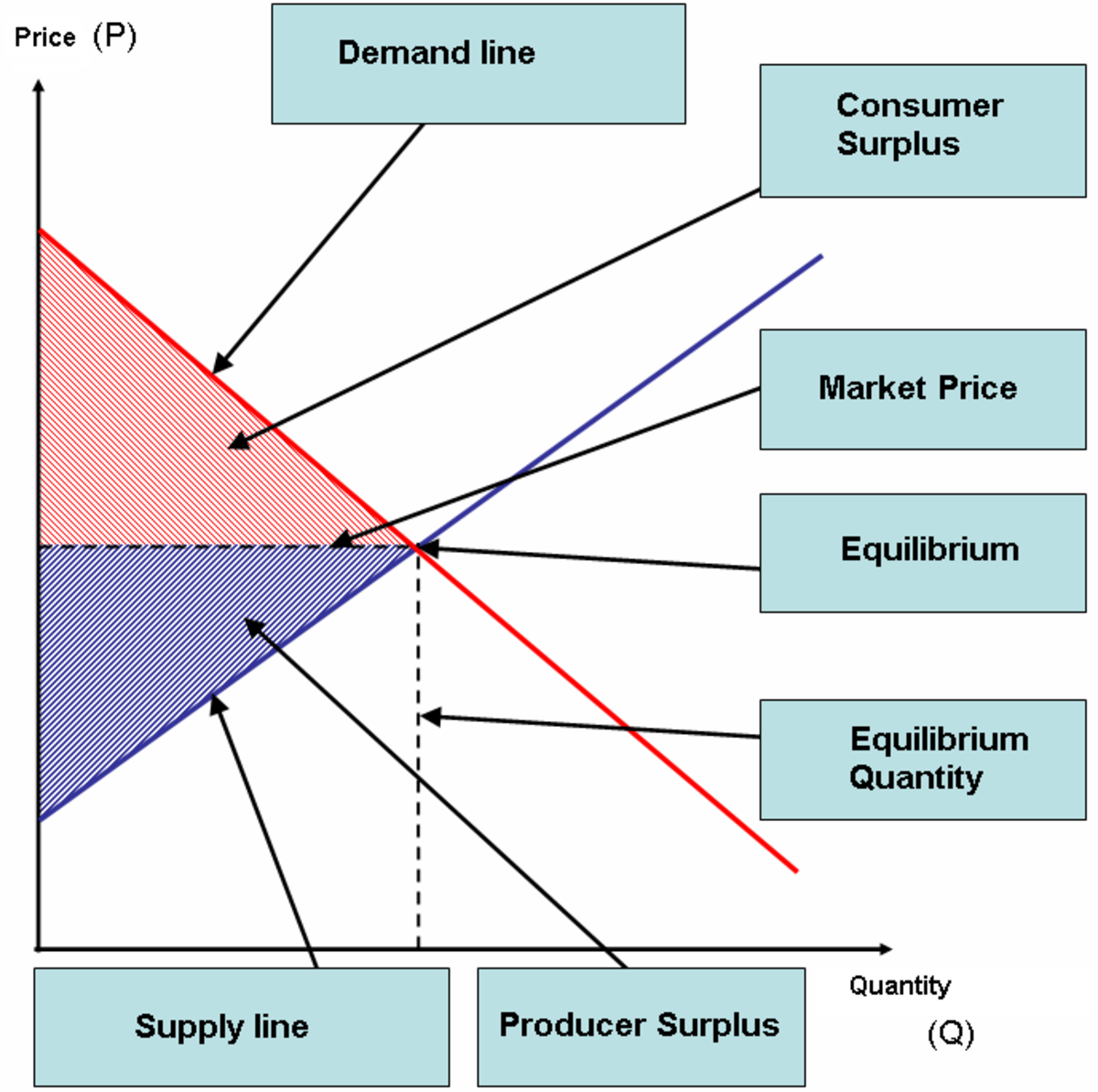Effects of Inflation - The Positives and the Negatives
Definition
Before going more in depth about the positives and negatives of inflation, the term "inflation" must be defined.rice of products goes up, jet people are still buying them.
There are two major types of inflation; core inflation and inflation in the broader sense. Core inflation is a measure of average. In this case a very carefully selected group of goods' (in economics it is called "basket of goods") change in consumer price over a period of time is observed, and then those consumer prices are averaged. Consumer prices are simply that people pay for the product (there is also an industrial price and inflation measuring supplier price changes). The most widely used periods over which inflation is measured are: 1 month, quarterly, semi-annual, and annual. Core inflation means only the very basic products's prices are monitored, such as bread for example. When there is a high inflation, its an indicator that the economy is booming, as the price of products goes up, jet people are still buying them.
Probably the most significant effect of inflation is its effect on the revenues of the government. When inflation is higher than previously thought and planned with, the revenues of the government increases, which is good as the budget balance of the government improves. The reason why revenues of the government increases when inflation incrases is because the government has higher tax revenues. For example a company sells its products and services at higher prices, which increases the total income of the company, which in turn increases the gross (before tax) profits of the company (provided that all other factors influencing profits remain constant). Greater before tax profits result in greater taxes paid to the government.
Inflation also slows the economy, thus
serving as a natural economy balancer, as well as a crucial indicator.
The reason why growing inflation moderates economic growth, and also
potential overheating of the economy, is because, when prices increase
and increase people, as well as companies from their suppliers, start to
buy less and less. This function of inflation decreases the needs of
central bank base rates' hikes, which in itself has many negative side
effects (like increasing the interest payment obligations of
governments).
Most of the times inflation and exchange rate of
the currency of a country move more or less parallel. This means that
if inflation increases, and the official statistical office of a country
publishes the figures of the speeding up of inflation, the exchange
rate of the currency of the country against foreign currency is also
expected to, and in reality it really does more often than not, devalue.
The reason why exchange rates are so important is because
they affect the competitiveness of exporting companies of a company. The
importance of exporting lies in the arrival of new money into the
economy of a country. For example, if a country has, say, 100 billion
dollars of national economic output, 1 billion more means that companies
have 1 billion more to spend in the country, and also the government
has more tax income which it can spend on spending more on social
matters. This means that inflation, in this aspect also, is a
significant indicator.
Inflation, on the other hand, can also be quite destructive. For example, a slow in inflation make importers' products cheaper, whereas domestic manufacturers' product prices remain the same. A sudden slow in inflation causes lower imported product prices, meaning two things. First, because of the lower import prices, more people will by imports opposed to domestically manufactured products. This hurts domestic production, which in turn may result in rising unemployment (domestic producers fire employees to keep up with shrinking sales revenue)
Another problem with rising inflation arises when inflation starts to increase excessively. For example, when inflation surpasses 10 percent, that has two effects. People will start spending more, hurting companies, especially those companies that are domestic companies and are selling their products domestically. Also the real value of savings of both people and organisations also decrease, having a negative effect on CDs (certificate of deposits), and other fixed rate investment instruments.
Useful sites about Inflation
- Inflation Rate Calculator- from InflationData.com
Inflation Calculator- Calculate the inflation rate in percent between any two different dates since 1914. Useful for adjusting prices to the inflation rate. - Welcome to Inflation Data .com
- Inflation - Wikipedia, the free encyclopedia






